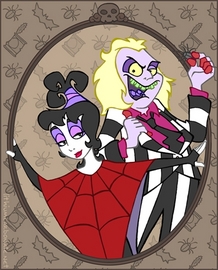
Realizing the fact that I’m a student who’s taking a Sociology class at Northwestern University in Qatar, I have definitely gained a better insight into the mechanism of this study in real life, as well as noticing how cultures and societies are greatly affected by each other. And of course, knowing the core elements of these two subjects is essential to achieve the full acknowledgement of this study. Although it’s true that I have heard the terms “subculture, norms, taboos” and many other terms in my life before, I have never actually knew how can they be applied on societies and on “real people” until I took this course. For instance, I never knew the vital and pivotal roles that norms play in a society until I had to break some of them in order to be able to write my first short project, a norm violation experiment.
However, people that have never taken such a class, have never read a book about it, or have never gone through special social situations absolutely have their own ideas and perceptions about the real meaning of culture. Some people might define it in a very generalized way, saying that it is all the apparent elements of a society. They would definitely include “frequently-referred-to” terms, such as traditions, celebrations, architecture, and religion. They might also clarify and say that religion can’t be considered a cultural element unless it is reflected through symbols, clothes, or special ceremonies. True. But this answer is clearly not what a sociologist or a sociology student is aiming for.

People often consider culture to be material culture only; the explicit things that they can touch and see (Griswold, “Culture and Societies in a Changing World). In contrast, they often ignore the non-material—implicit—culture, in which it is represented in beliefs, values, norms, gestures, and other implied elements of a society. The conception that people have about identifying cultures through their exterior elements—only—is false. Sociology wouldn’t even exist without the linkage between the implicit and the explicit elements of a society. A good explanation of what I’m trying to elaborate can be illustrated through the following example:
When you go to a church, you don’t expect to see soldiers standing in lines, practicing and drilling for their second heroic mission. You would expect the place to be quiet and peaceful, and you would expect to see people praying or reading the Bible because that’s the way it goes in sacred places. There are special religious rituals, behaviors, and atmospheres that conquer the place and they don’t have to be materially placed right in front of you that tell you how to act or behave. It all comes out of you spontaneously.
I interviewed a few people from the Education City in Qatar to know how they define culture from their own perspectives:















.jpg)

















 I saw the large recognizable Hardees star from a distance and my brain suddenly decided i was craving burgers, perhaps it was because of all the
I saw the large recognizable Hardees star from a distance and my brain suddenly decided i was craving burgers, perhaps it was because of all the 

 I also went to
I also went to 


























